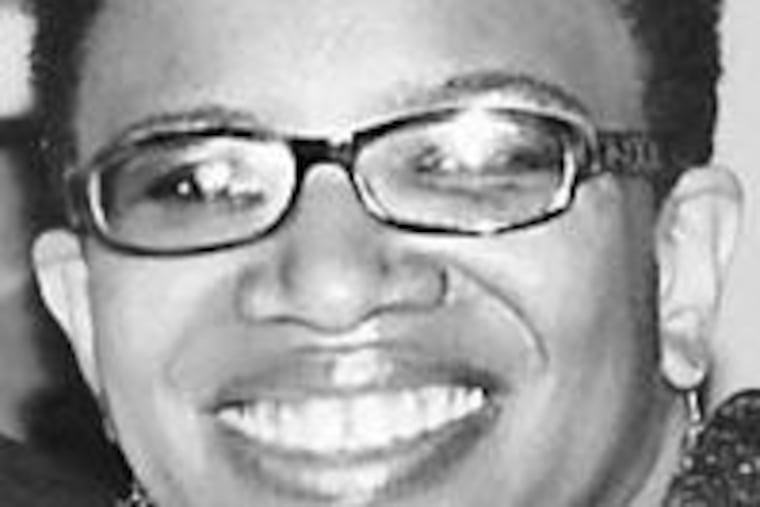Wounds endured entering manhood
By Karen J. Hamilton In most cultures of the world, celebrations mark the passage of a boy from childhood into manhood. It is usually a time of affirmation, increased privilege and great joy. Why, then, do I feel such anxiety, concern and sadness for my own son's entrance into manhood?

By Karen J. Hamilton
In most cultures of the world, celebrations mark the passage of a boy from childhood into manhood. It is usually a time of affirmation, increased privilege and great joy. Why, then, do I feel such anxiety, concern and sadness for my own son's entrance into manhood?
James is a 15-year-old honor student at one of the city's best public high schools. He is a caring, pleasant child, the oldest of four children, who loves playing basketball, eating fried chicken and fidgeting around with the latest technology. He is generally fun to be around, responsible and motivated to do well in life.
James is also an African American man-child. Very much a boy, James still watches Nickelodeon, laughs at his dad's jokes and makes adolescent wise-cracks. But he is also becoming a man. His brown skin now frames 5 feet, 5 inches of toned muscles, and his face is no longer boyish, but handsomely masculine. His presence is now marked by a velvety, baritone voice and the bouncy, confident gait of a man-child. In our society, my son reflects the image of someone who scares many people to death.
The new response to my growing black man-child became evident to me - and sadly to him - during a snowstorm in March.
James went through his normal routine of bundling up to go outside and shovel our walkway. He noticed a neighbor's unshoveled walk and asked if she would like him to clear a path. "No, no . . . that's OK . . . " she retorted sharply, with the body language born generations ago that shrieked, "I am afraid of you! Get away from me, black man!"
As he recounted the ordeal to me, I was struck by his own woundedness. "I was just trying to help her. I didn't want money or nothing. She acted like I was some kind of thug . . . ," he said, drifting off in thought.
I had noticed traces of these reactions to other black men and the unspoken sentiment was all too familiar to me. I had observed the nervous stares from people in public as black men laughed and talked, boisterously unashamed, dominating buses, street corners and malls like they belonged to them.
I had seen the careful clutching of purses by women when they passed a black male pedestrian. I had sensed the tense transformation in the atmosphere when black men came on the scene. And I knew of my husband's frustration when cabdriver after cabdriver passed him by while waiting on a Center City corner after dark.
Most of the black men I know are just like you and me - going to school, working to support their families, meeting in churches, obeying the law. This is overshadowed in a city where the murder rate is already at 150 and where the daily media images of black men threatening our safety seem to validate the stereotype of the black man as someone to fear.
We feel justified that our fears are at least backed up by some statistical information. But they don't tell the whole story.
I want to scream, This is my son! Not only is he an honor student who has never been in a fight or disrespected a teacher, but he is a decent person. I want to scream, This is my son! He is kind to his friends and compassionate to people in need. He is generous, regularly contributing money out of his allowance to our church. He is gentle, babysitting his siblings and expressing dreams of becoming a teacher.
Nearly 40 years ago, a great American leader was assassinated. The Rev. Dr. Martin Luther King Jr. believed that people should be judged, not by the color of their skin, but by the content of their character. As my own son enters adulthood, it is a period tainted by the sad reality that he and I realize this society does not want him to become a man.
Without dwelling on the past, I reflect on the time in his life when he was little James - a bright, playful and outgoing boy, embraced and nurtured by white and black teachers alike. To the world, he was just a boy. Period.
When I think about that snowy day I am saddened. I mourn the loss of my son's innocence, pierced by the crushing blow of what it means to be an African American man-child.
I pray that as we prepare him for a society that can at times be hostile and unkind, he will be committed to the ideals of Dr. King and will respect people for who they are and not for the color of their skin. That will be worth celebrating.